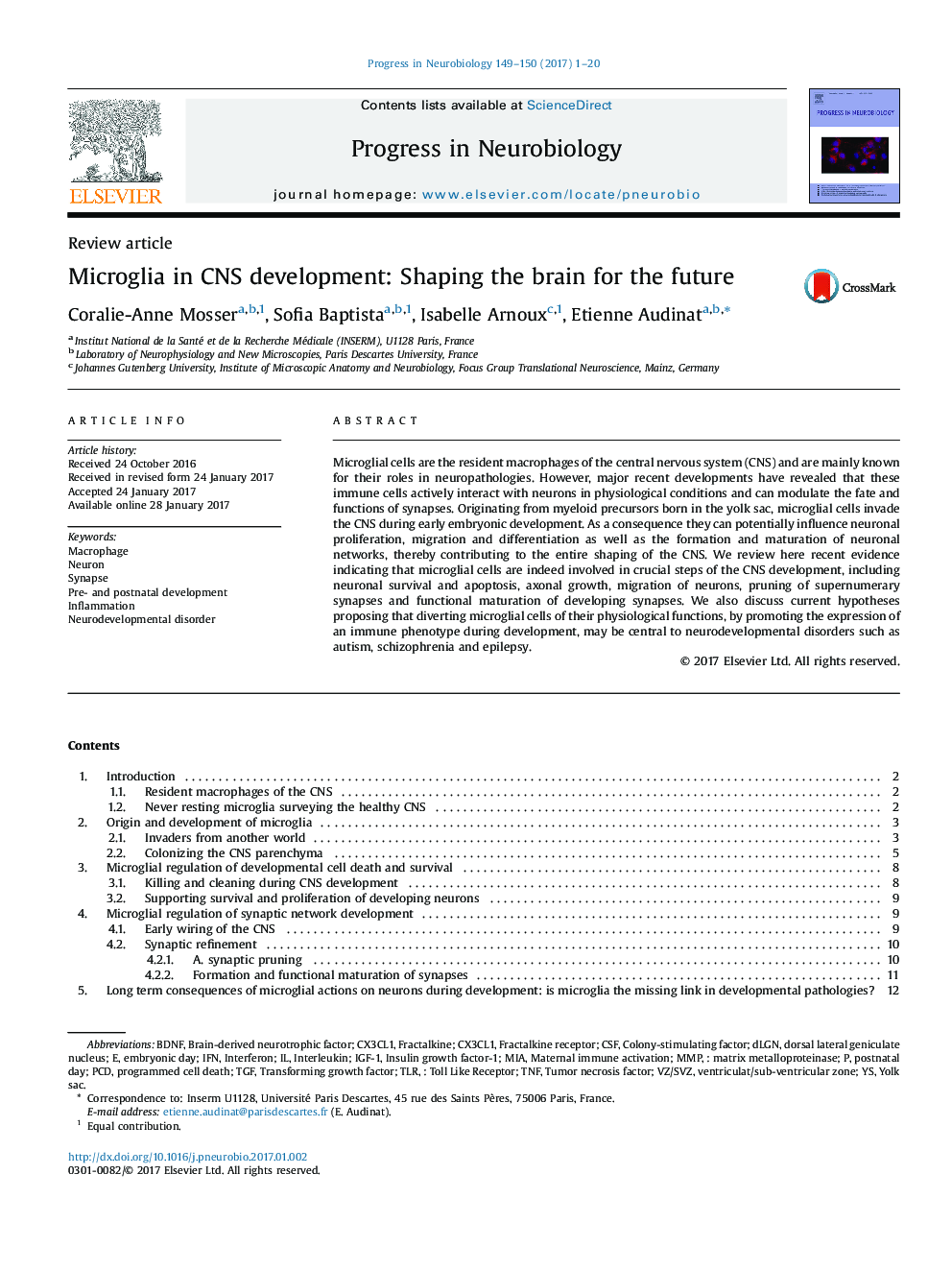| Article ID | Journal | Published Year | Pages | File Type |
|---|---|---|---|---|
| 5739080 | Progress in Neurobiology | 2017 | 20 Pages |
Abstract
Microglial cells are the resident macrophages of the central nervous system (CNS) and are mainly known for their roles in neuropathologies. However, major recent developments have revealed that these immune cells actively interact with neurons in physiological conditions and can modulate the fate and functions of synapses. Originating from myeloid precursors born in the yolk sac, microglial cells invade the CNS during early embryonic development. As a consequence they can potentially influence neuronal proliferation, migration and differentiation as well as the formation and maturation of neuronal networks, thereby contributing to the entire shaping of the CNS. We review here recent evidence indicating that microglial cells are indeed involved in crucial steps of the CNS development, including neuronal survival and apoptosis, axonal growth, migration of neurons, pruning of supernumerary synapses and functional maturation of developing synapses. We also discuss current hypotheses proposing that diverting microglial cells of their physiological functions, by promoting the expression of an immune phenotype during development, may be central to neurodevelopmental disorders such as autism, schizophrenia and epilepsy.
Keywords
Related Topics
Life Sciences
Neuroscience
Neuroscience (General)
Authors
Coralie-Anne Mosser, Sofia Baptista, Isabelle Arnoux, Etienne Audinat,
